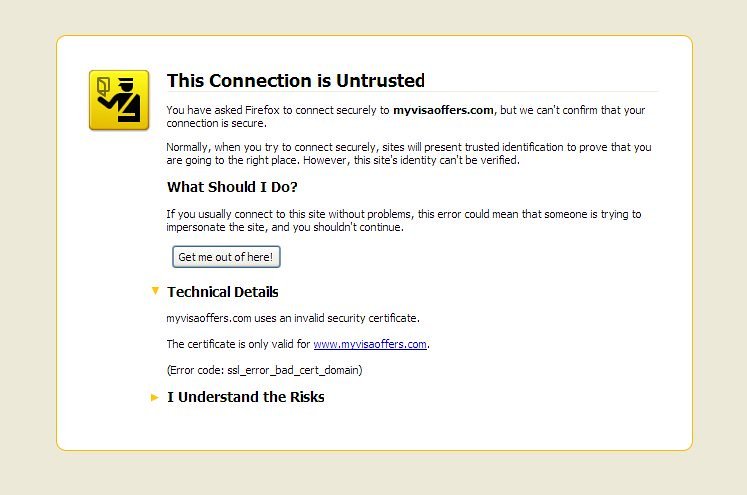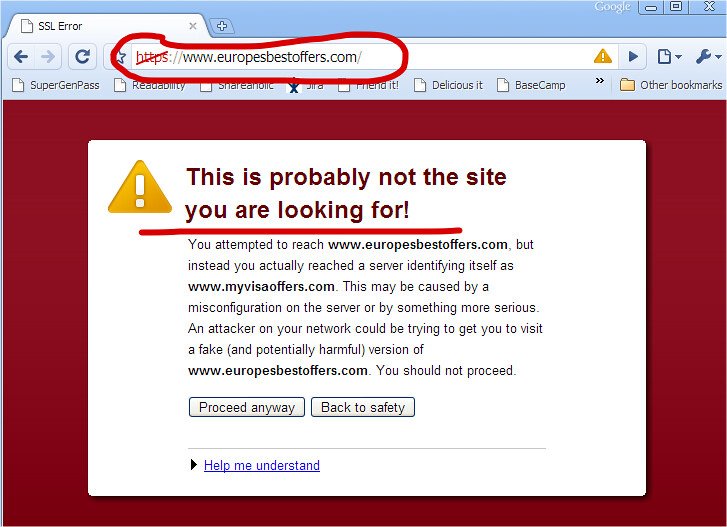In an age where our lives revolve around the boundless World Wide Web, safeguarding our online presence has become an imperative task. There’s no denying that the internet has redefined the way we live, but with great power comes an even greater need for protection. Enter SSL certificates – the unsung heroes of web security that encrypt our data, keeping it safe from prying eyes. In this article, we will embark on a journey to unravel the mysteries behind these digital guardians, exploring how they unlock a world where trust and confidentiality intertwine to shield us from the perils of a vast digital landscape. So, grab your virtual seatbelt, and let us navigate the intricacies of SSL certificates, fortifying our online existence one byte at a time!
Table of Contents
- The Importance of SSL Certificates in Ensuring Secure Web Transactions
- Understanding the Different Types of SSL Certificates: Which One is Right for You?
- Best Practices for Implementing SSL Certificates to Safeguard Your Website
- Key Considerations When Selecting a Trustworthy SSL Certificate Provider
- Q&A
- Final Thoughts

The Importance of SSL Certificates in Ensuring Secure Web Transactions
SSL certificates play a pivotal role in guaranteeing secure web transactions. These digital certificates provide a fundamental layer of protection for users’ sensitive information, ensuring that their data remains confidential and safe from malicious attacks.
One key benefit of SSL certificates is the encryption they offer. When a website has an SSL certificate, the data exchanged between the user’s browser and the web server is encrypted. This means that even if a hacker intercepts the data, they will only see a jumble of characters that is nearly impossible to decipher. By implementing SSL certificates, businesses and websites can protect their users’ personal information, such as passwords, credit card details, and addresses, from falling into the wrong hands.
Moreover, SSL certificates also offer an added layer of trust and authentication. When a website has an SSL certificate, it displays a padlock icon in the address bar, indicating that the connection is secure. Additionally, the website’s URL will start with “https” instead of “http,” with the ‘s’ standing for secure. These visual cues assure users that they are interacting with a genuine and trustworthy website. In contrast, websites without SSL certificates may display warning messages, discouraging users from proceeding with their transactions. Thus, SSL certificates not only safeguard user data but also enhance the overall credibility and reputation of a website.
In conclusion, SSL certificates are essential in ensuring secure web transactions. With their encryption and authentication capabilities, these certificates protect users’ sensitive information from unauthorized access. By implementing SSL certificates, websites can establish trust with their users, creating a secure environment for online interactions. So, if you’re a business owner or website administrator, investing in SSL certificates is a crucial step towards safeguarding your users’ data and establishing a robust web security framework.
Understanding the Different Types of SSL Certificates: Which One is Right for You?
Securing data transmitted over the internet is crucial to protect sensitive information from falling into the wrong hands. SSL certificates play a pivotal role in safeguarding your website’s data by encrypting the communication between a browser and a server. They create a secure connection, ensuring that any data transmitted remains private and integral. But with various types of SSL certificates available, how do you know which one is right for you? Let’s dive in and explore the different types, allowing you to make an informed decision.
1. Domain Validated (DV) SSL Certificates:
This is the most basic type of SSL certificate, providing essential encryption for your website. DV certificates are relatively easy to obtain and often come at a lower cost. They simply validate that the owner of the domain requested the certificate, without verifying any additional information.
2. Organization Validated (OV) SSL Certificates:
OV certificates provide a higher level of security compared to DV certificates. In addition to domain validation, OV certificates verify the existence of your organization and other essential details. These certificates display your organization’s name in the browser’s address bar, building visitor trust and confidence. OV certificates are suitable for businesses or organizations that need to establish their authenticity.
3. Extended Validation (EV) SSL Certificates:
EV certificates are the gold standard for SSL security. With the highest level of trust and validation, these certificates trigger the browser to display a green address bar, prominently showcasing your organization’s name. This visual cue instantly assures visitors that your website has undergone rigorous verification processes. EV certificates are particularly crucial for e-commerce websites, as they enhance customer trust and help prevent phishing attacks.
Understanding the different types of SSL certificates allows you to choose the one that best suits your website’s purpose and security requirements. Whether you’re a small blog owner or an e-commerce giant, selecting the right SSL certificate ensures your visitors’ data remains confidential and protected from potential threats. Stay safe and secure with the appropriate SSL certificate for your website’s needs.
Best Practices for Implementing SSL Certificates to Safeguard Your Website
SSL certificates are essential for keeping your website and its data secure. Implementing SSL certificates can help protect sensitive information such as passwords, credit card details, and personal data from being intercepted by malicious actors. To safeguard your website effectively, it is crucial to follow best practices when it comes to SSL certificate implementation. Here are some key tips to help you get started:
1. Choose a reputable certificate authority: When obtaining an SSL certificate, it is important to select a trusted and well-established certificate authority (CA). Look for CAs that are recognized and widely used in the industry to ensure the validity and reliability of your certificate.
2. Match the certificate to your needs: SSL certificates come in different types, each with distinct features and levels of validation. For instance, Extended Validation (EV) certificates provide the highest level of assurance as they require extensive validation of the website owner’s identity. On the other hand, Domain Validated (DV) certificates offer basic encryption without rigorous validation. Assess your website’s requirements and choose a certificate that aligns with your specific needs and budget.
3. Install the certificate correctly: After obtaining the SSL certificate, it is essential to install it correctly on your web server. Failure to do so may result in security warnings or even render the certificate unusable. Follow the instructions provided by your certificate authority or consult your web hosting provider to ensure a smooth and error-free installation process.
4. Keep your certificate up to date: SSL certificates have an expiration date, typically ranging from one to three years. It is crucial to keep track of the expiration date and renew your certificate in a timely manner to maintain uninterrupted security for your website. Regularly check for updates and renewals to prevent any potential vulnerabilities.
By implementing SSL certificates and following these best practices, you can enhance the security of your website and protect sensitive data from unauthorized access. Prioritize web security and stay proactive in maintaining and updating your certificates to ensure a safe online experience for your users.
Key Considerations When Selecting a Trustworthy SSL Certificate Provider
With the increasing number of cyber threats and the growing need for secure online transactions, it has become crucial to have a reliable SSL certificate provider. While selecting the right provider might seem like a daunting task, keeping a few key considerations in mind can help you navigate through the options and make an informed decision.
Firstly, it’s important to check if the SSL certificate provider offers a wide range of SSL certificates to cater to different website needs. Whether you run a small blog, an e-commerce site, or a multinational corporation, having the right SSL certificate is vital. Look for providers that offer options such as wildcard certificates, EV certificates, and multi-domain certificates, as these can provide enhanced security features to protect your website and data.
Another important consideration is the reputation and trustworthiness of the SSL certificate provider. After all, you’re entrusting them with safeguarding your sensitive information. Look for providers that are well-known and respected in the industry. Check if they are certified by credible industry authorities such as the Certification Authority Authorization (CAA) or WebTrust. Additionally, read reviews and testimonials from other website owners to get a sense of their experience with the provider. Remember, a reputable SSL certificate provider will have a track record of providing excellent customer support and quick issuance of certificates, ensuring that your website remains secure at all times.
Q&A
Q: What is SSL and why is it important for web security?
A: SSL stands for Secure Socket Layer, a cryptographic protocol that ensures secure communication between a web server and a browser. It is essential for web security as it encrypts data transmitted online, preventing unauthorized access and protecting sensitive information.
Q: How does an SSL certificate safeguard data?
A: An SSL certificate serves as a digital passport for websites, authenticating their identity and enabling secure connections. By encrypting data, SSL keeps it safe from prying eyes, ensuring that personal details, credit card numbers, and other sensitive information remain confidential during transmission.
Q: Can you explain how SSL certificates work?
A: Certainly! SSL certificates work through a process known as asymmetric encryption. When a user attempts to access a website with an SSL certificate, the server sends a public key to the browser to establish a secure connection. This encryption ensures that any data exchanged between the server and browser remains confidential and cannot be intercepted.
Q: How can SSL certificates benefit businesses and website owners?
A: SSL certificates play a crucial role in building trust among customers. With an SSL certificate, visitors to a website can be confident that their personal information is well-protected. This instills a sense of security, encouraging users to engage in online transactions, boosting conversions, and enhancing the credibility of the website itself.
Q: Are SSL certificates only necessary for e-commerce websites?
A: While SSL certificates are crucial for e-commerce websites, they are also necessary for any website that handles sensitive data, such as login credentials, contact forms, or personal information. Implementing SSL across all websites helps ensure the security and privacy of users’ data, regardless of the nature of the website.
Q: How can users identify websites protected by SSL certificates?
A: Websites protected by SSL certificates can be identified through two key indicators. Firstly, the website’s URL will begin with “https://” rather than the unsecured “http://”. Secondly, browsers often display a padlock icon in the address bar, indicating that the website is utilizing SSL encryption.
Q: Can SSL certificates be obtained for free, or are they generally paid for?
A: SSL certificates are available in both paid and free options. While organizations can purchase SSL certificates from trusted Certificate Authorities (CAs), there are also trusted providers who offer SSL certificates for free, such as Let’s Encrypt. The choice between a paid or free certificate depends on the specific needs and requirements of each website owner.
Q: How frequently do SSL certificates need to be renewed?
A: The lifespan of SSL certificates can vary, usually ranging from one to two years. After the certificate expires, it must be renewed to maintain an uninterrupted secure connection and encryption on the website. Regular updates and renewals ensure continuous protection and optimize the security measures implemented.
Q: Are there any notable drawbacks or challenges to implementing SSL certificates?
A: While SSL certificates significantly enhance web security, there may be potential drawbacks. Implementing SSL certificates can increase the workload for web developers and website owners, requiring technical expertise and additional configuration. Additionally, SSL certificates need to be regularly maintained and renewed, which can involve time and effort. However, these challenges are outweighed by the benefits provided in safeguarding user data and trust.
Q: Is it possible for hackers to bypass SSL encryption?
A: While SSL encryption is highly secure, it is not immune to advanced cyber attacks. In rare cases, determined and skilled hackers can exploit vulnerabilities in older SSL protocols or target weaknesses in the server configuration. Nonetheless, frequent security updates, the use of strong encryption algorithms, and choosing reputable Certificate Authorities significantly minimize the risk of bypassing SSL encryption.
Final Thoughts
In conclusion, as we traverse the vast expanses of the digital realm, one thing is crystal clear – safeguarding our data has never been more crucial than it is today. The ever-evolving threats lurking in cyberspace demand our attention, urging us to fortify our web presence with impenetrable protection. Enter SSL certificates, the unsung heroes of web security, standing as formidable guardians of our sensitive information.
Like a knight in shining armor, SSL swoops in, armed with encryption, authentication, and integrity, to ward off the malicious intentions of cyber miscreants. It single-handedly safeguards our online transactions, shielding them from prying eyes, and offering peace of mind to businesses and users alike. An invisible force shield, SSL cast across our virtual interactions, whereby every click, every keystroke, and every digit exchanged becomes a secret locked within an impregnable vault.
However, its significance extends far beyond securing data; SSL certificates have become the symbol of trust on the internet. By displaying that padlock icon or a reassuring green address bar, websites assure their visitors that they are navigating in safe hands. It’s a digital handshake that evokes confidence, building relationships between businesses and customers, fostering loyalty, and ultimately driving growth.
Yet, as we marvel at the wonders of SSL, we must remain cognizant of their continuous evolution. Cyber threats are always evolving, adapting, and becoming more sophisticated with each passing day. In this fast-paced digital age, sticking with outdated SSL encryption is akin to giving them a loophole to exploit.
Therefore, it is incumbent upon us to stay vigilant, to stay informed, and to keep our web security up to date. Embrace the power of SSL certificates, embrace the technology that fortifies our digital footprints, and take an upstanding stance in protecting what matters most – our data. Remember, behind every website, every transaction, and every digital interaction lies a team of dedicated security systems governed by SSL – the silent sentinels ensuring our digital sanctuary remains impenetrable.
So, as we bid farewell to this discussion on unlocking web security, let us not forget the vital role SSL certificates play in safeguarding our data, fortifying our trust, and illuminating the path towards a secure digital future. With SSL by our side, let us embark on this digital journey, fearlessly venturing into the boundless wonders that the world wide web has to offer, safe in the knowledge that our data remains resolutely protected.

